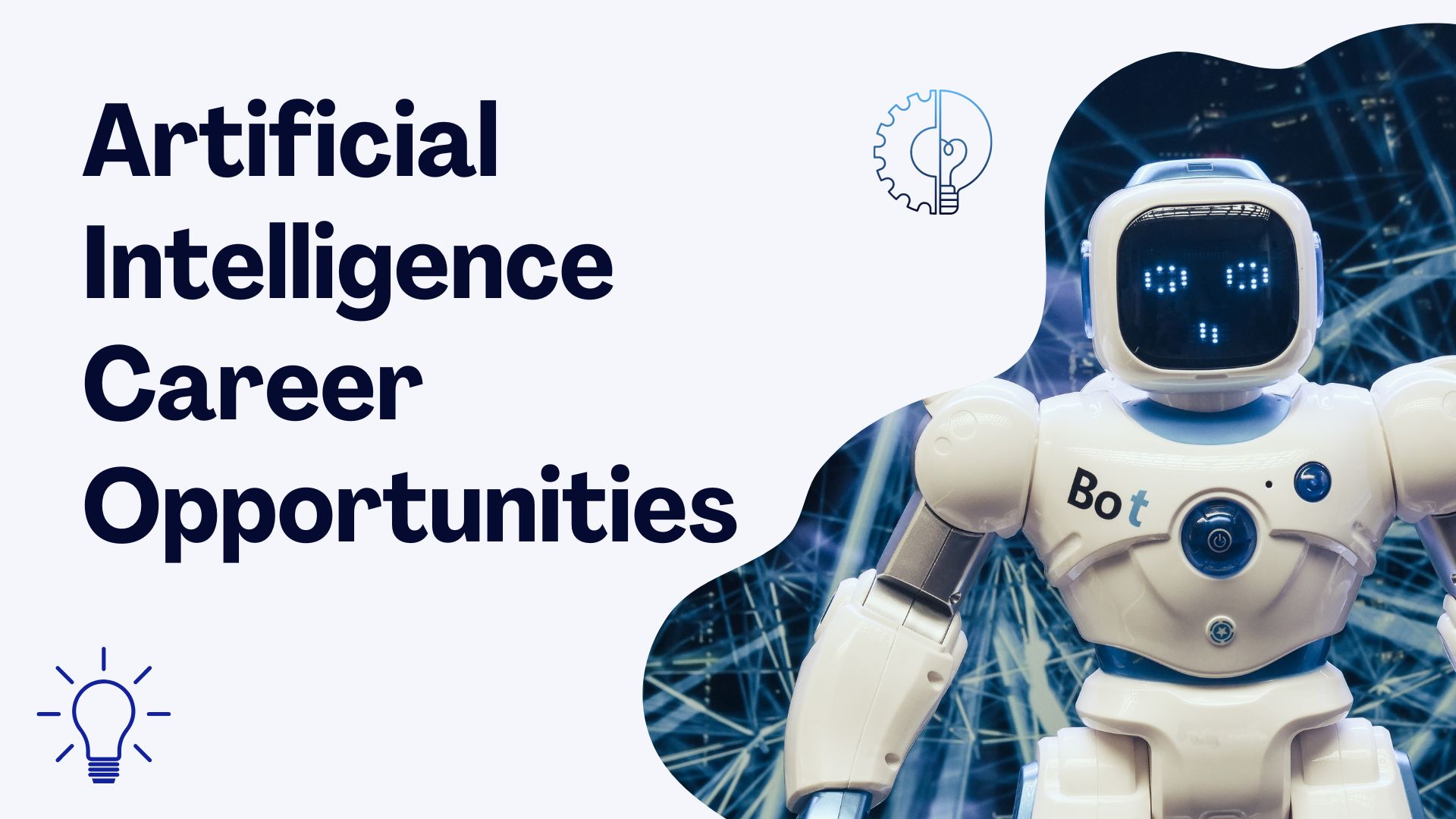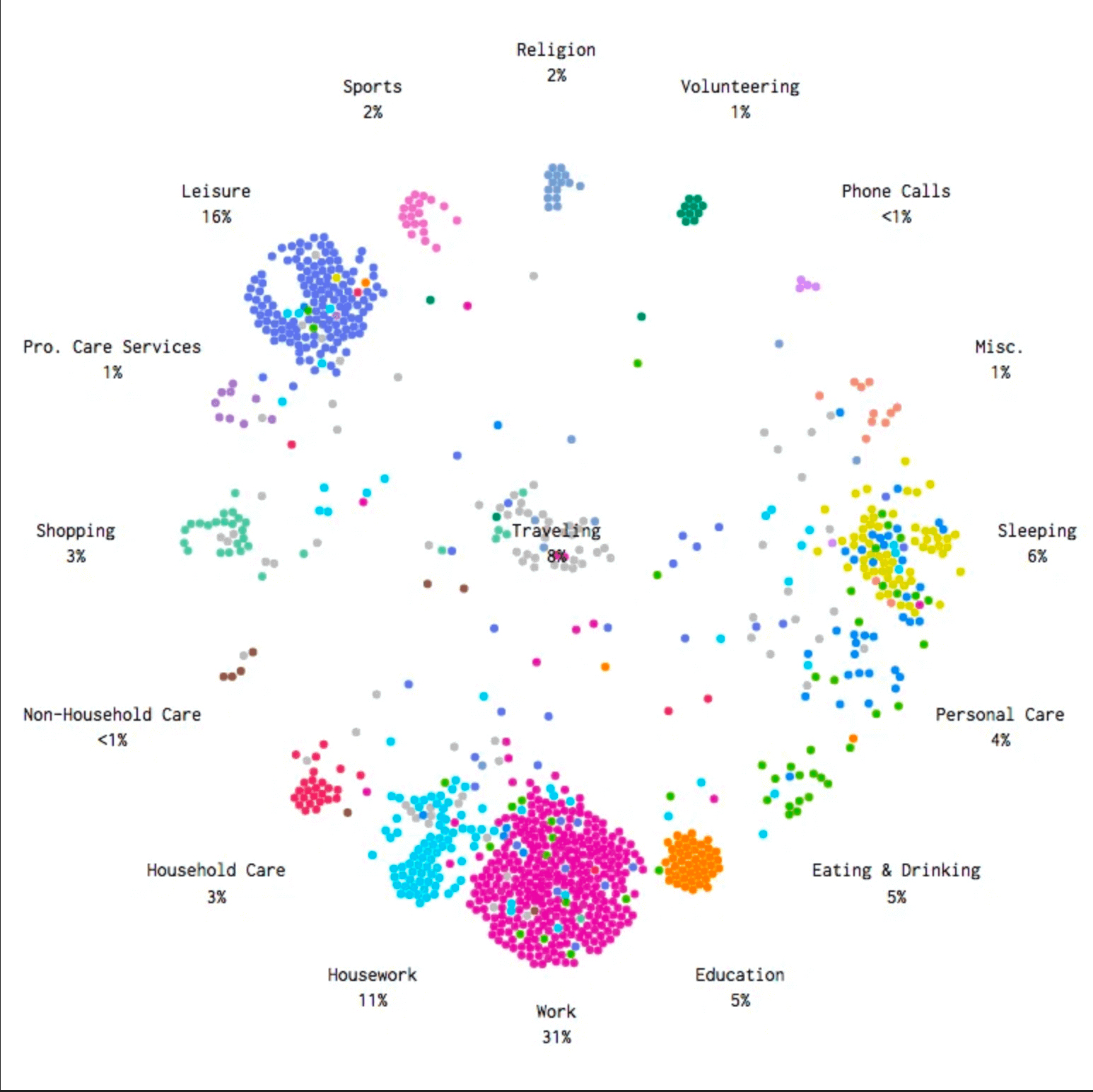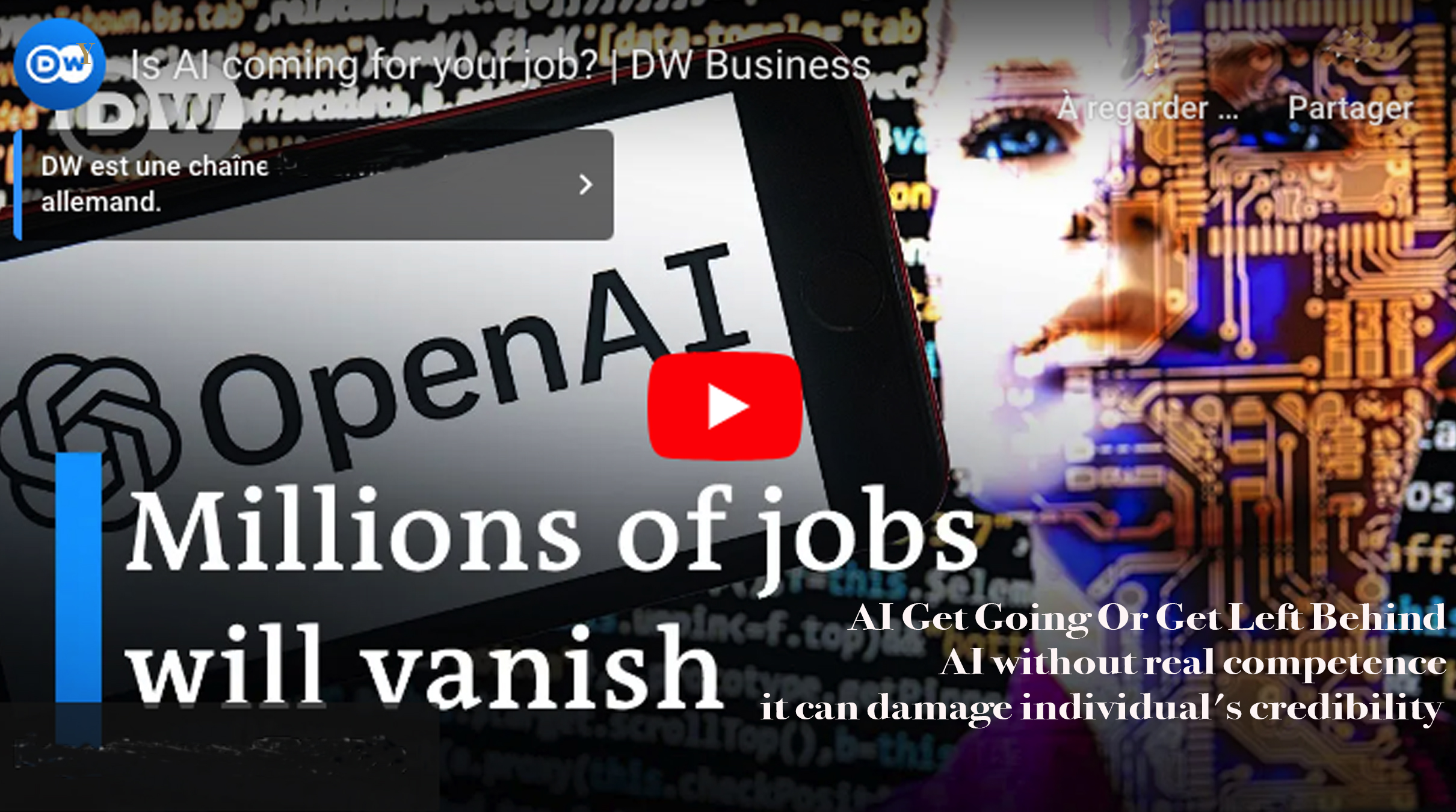AI Get Going Or Get Left Behind – AI without real competence it can damage individual’s credibility
Date: September 5 2023
Location: Paris
Companies are swiftly incorporating AI

Companies are swiftly incorporating AI into their business processes, potentially leading to job reductions before the benefits materialize.
White-collar workers, in particular, may face heightened vulnerability in the near term. Nevertheless, the rapid pace of AI adoption offers an opening for companies to accelerate their innovation efforts.
If a sufficient number of companies take proactive measures, concerns about AI-related job losses may be mitigated.
Embracing a culture of audacity and adopting a startup mindset can empower companies to seize this opportunity, ultimately safeguarding employment.
AI, a hot topic in the professional world

Artificial intelligence (AI) has indeed become a hot topic in the professional world, and many workers feel the pressure to claim to know more about AI than they do. This can arise for several reasons:
Competitiveness

In an increasingly competitive job market, workers may fear being left behind if they are not perceived as competent in AI. This can lead them to exaggerate their knowledge or claim to have mastered AI-related concepts.
Career opportunities

Career opportunities in AI can be attractive in terms of salary and prospects. Workers may be tempted to claim to have AI skills to access these opportunities, even if they don’t possess them.
AI skills need a process to acquire knowledge with the following steps :
Honest Self-Assessment
Assess your current skill level and identify areas where you need improvement.
Skill Development
Invest time and effort in acquiring the necessary skills through education, online courses, certifications, and practical experience.
Networking
Connect with professionals in the field, attend conferences, and join AI-related communities to learn from others and gain insights.
Internships and Entry-Level Positions
Consider starting in entry-level roles or internships to gain practical experience and build your skills from the ground up.
Portfolio Building
Create a portfolio of projects and work that demonstrate your AI skills. This can be a powerful way to showcase your abilities to potential employers.
Continual Learning:
AI is a rapidly evolving field, so it’s crucial to stay updated on the latest developments and technologies.
AI Company pressure

Sometimes, companies may value AI skills and encourage their employees to train in them. This can encourage workers to pretend to be more competent than they are, to meet the company’s expectations.
Certainly, many companies highly value AI skills and expertise due to the significant impact AI can have on their operations and competitiveness. In such cases, employees may feel pressure to develop or enhance their AI skills to meet the company’s expectations.
This pressure can arise for several reasons.
Market Demand
As AI technologies become more integrated into various industries, there is a growing demand for professionals with AI expertise. Companies may feel the pressure to stay competitive by hiring AI talent.
Strategic Goals
Some companies have AI-related strategic goals, such as automating processes, improving customer experiences, or developing AI-driven products. To achieve these goals, they need employees with AI skills.
Data-Driven Decision-Making
AI enables data-driven decision-making, which can lead to better business outcomes. Companies may expect their employees to have AI skills to analyze and extract insights from data.
Cost Savings
Automation through AI can lead to cost savings in the long term. Companies may encourage employees to learn AI to reduce operational costs.
Innovation
AI can be a driver of innovation, leading to the development of new products, services, and business models. Companies may prioritize AI skills to foster innovation within their organization.
AI training – Lack of adequate training

If access to AI training is not easy, some workers may feel compelled to pretend to master these skills for lack of training opportunities.
A lack of proper training in AI tools can lead to inefficient use of these technologies, which can result in suboptimal results and wasted resources for companies.
Here are some of the key challenges and consequences associated with inadequate AI training.
Inefficiency
Employees who are not properly trained in AI tools may struggle to use them effectively. This can lead to inefficiencies in tasks that could otherwise be automated or streamlined through AI, such as data analysis, customer support, or document processing.
Error Proneness
Without adequate training, employees are more likely to make mistakes when working with AI systems. These errors can lead to incorrect data analysis, misclassification of data, or other costly errors.
Underutilization
In some cases, employees may avoid using AI tools altogether due to a lack of understanding or confidence in their abilities. This results in the underutilization of valuable technology that could improve productivity and decision-making.
Resource Waste
Inefficient use of AI tools can waste both time and financial resources. Companies invest in AI technology with the expectation of a return on investment, and when employees are not trained to use these tools effectively, that ROI may not be realized.
Frustration and Burnout
Employees who struggle with AI tools may experience frustration and stress, leading to burnout. This can hurt morale and employee retention.
AI without real competence can damage an individual’s credibility
However, it’s important to note that pretending to know AI without real competence can have negative consequences.
It can damage an individual’s credibility, lead to costly mistakes, and potentially affect the quality of work.
Solution: Training and apprenticeship opportunities

Instead of pretending to know AI, workers should seek out training and apprenticeship opportunities to acquire the necessary skills.
Numerous online resources, online courses, certification programs, and in-company training courses are available to help workers authentically learn about AI.
It’s also essential that companies foster a working environment where employees can confess their skills shortcomings without fear of reprisal, to encourage continuous learning and skills improvement.
To transition from a Passive observer to an Active Participant
Millions of Jobs will Vanish
INDIRÂH EVENTS & COMMUNICATION
BY INDIRA YANNI DOMINGO
MEDIA PARTNER:
Editorial: DNA – International
Photographer: Dan NGUYEN
Media: DN-A INTERNATIONAL
Media: DN-AFRICA.COM
LINKS TO OUR ONLINE MAGAZINES :
Media: DN-AFRICA.COM
Youtube
DN AFRICA FASHION VIDEOS
@dnafricafashionvideos
Youtube : https://www.youtube.com/channel/UC4fMc8BKf-8AOksnE-oO26A
Facebook
https://www.facebook.com/DnAfricaDesignerNews/
Instagram:
Dn-Africa Official
Magazine
https://www.instagram.com/dnafricacom/
Twitter
DN AFRICA FASHION VIDEOS
@DnaInternat





:quality(70):focal(592x343:602x353)/cloudfront-eu-central-1.images.arcpublishing.com/businessoffashion/QHXTZONMFRGJNLAPIOJHOXZ53A.jpg)

